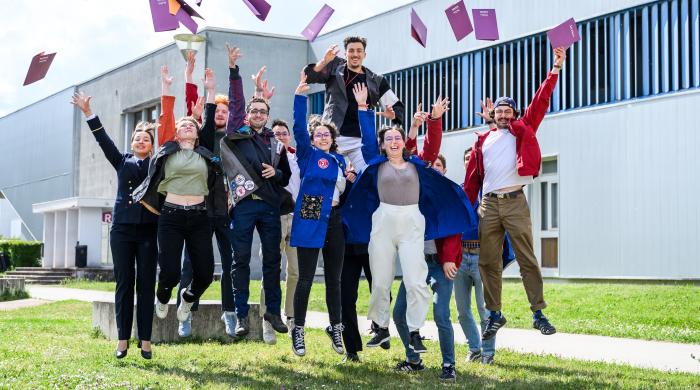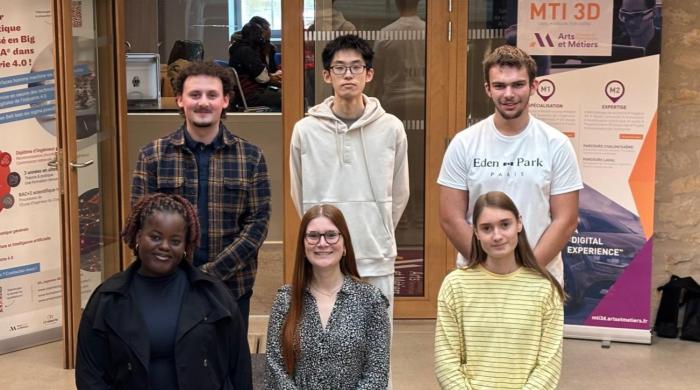
In response to economic, social, and environmental challenges, Arts et Métiers has been committed for several years to a sustainable development approach—an ambition officially embedded since 2022 in the institution’s strategic plan under the new mandate of the General Director.
Building France’s Industry of 2030
In response to economic, social, and environmental challenges, Arts et Métiers has been committed for several years to a sustainable development approach. Since 2022, this ambition has been officially embedded in the institution’s strategic plan under the General Director’s new mandate through Axis 2: "Social and Environmental Responsibility."
Building France’s Industry of 2030
Since 1780, Arts et Métiers has continuously adapted to support industrial revolutions, thanks to its unique identity—blending science, technology, pragmatism, action-oriented skills, and human qualities. Originally founded during the mechanization of industrial activities, the institution has expanded its expertise over time, covering mechanical engineering, electrical engineering, and later, industrial engineering.
To anticipate and meet the evolving needs of companies, the school has developed research activities dedicated to fostering innovation. Always attuned to industry and regional needs, it has established a presence across multiple locations, now operating 13 sites in France and 1 in Morocco. It has also created two subsidiaries: AMTALENTS for continuous education and AMVALOR for applied research supporting businesses.
Training leaders for responsible industries is a key challenge in shaping France’s industry of 2030. Arts et Métiers prepares hands-on professionals who design and drive innovations from research, ensuring that organizations can adapt to ongoing digital and ecological transitions.
Responsible businesses and industries work to meet human needs, manage their impact, and contribute to a just and sustainable future.
With its unique positioning, strong regional ties, and humanist values, Arts et Métiers integrates sustainable development and social responsibility at the core of its institutional strategy—across education, research, and partnerships. The ecological transition is a key priority in Laurent Champaney’s action plan for his second term as General Director of Arts et Métiers. This momentum has been reinforced with the 2023-2027 Sustainable Development & Social Responsibility (DD&RS) Action Plan, mobilizing the entire Arts et Métiers ecosystem to support responsible reindustrialization. The institution remains committed to building a human-centered and sustainable future.
Arts et Métiers is thus committed to embedding sustainable development within its overall strategy through all its activities, including governance, teaching, research, site management, and social policies.
The 5 Pillars of the Arts et Métiers DD&RS Action Plan
The plan is based on the five pillars of the DD&RS label, aligned with the Government’s energy-saving plan, the Higher Education Transition Convention (CTES), the ADEME framework, and the United Nations' 17 Sustainable Development Goals (SDGs):
- Strategy, Governance, and Regional Anchoring
- Teaching and Training
- Research and Innovation
- Environmental Management
- Social Policy
"This plan is a top priority. It places sustainable development and social responsibility at the heart of our institution’s strategy. We are all fully committed to supporting a responsible reindustrialization."
— Laurent CHAMPANEY, General Director of Arts et Métiers



